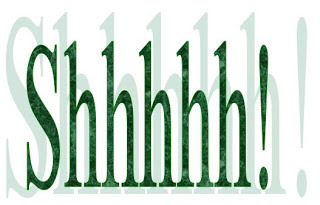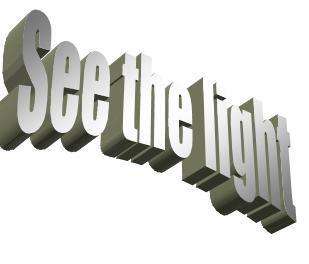Brian Clegg's Blog, page 148
February 24, 2012
Whiter than white
I saw a TV advert the other day that left me just short of jumping up and down, screaming and throwing things at the television. It took the 'dubious promise' technique to a whole new level.
The advert in question was for the quaintly named Arm and Hammer toothpaste. In it, ex-Blue Peter presenter Katy Hill was very enthuasiastic about their whitening toothpaste. She told us it would make your teeth 'up to 3 shades whiter or your money back.'
Let's examine that claim. 'Up to' is of course the magnificent marketing weasel words term. 'Up to' is totally meaningless in that it can be anything from zero to the amount specified. So 'Up to 50% off' could mean 'nothing off'. The '3 shades whiter' bit is sort of okay. No normal punter probably knows what three shades whiter looks like, but there is an official definition. But here's the killer. 'Or your money back.'
By combining 'Up to' and 'or your money back' Arm and Hammer has produced a magnificent paradox. We have to ask the makers, what do we have to do to get our money back? The ONLY circumstances in which you can get your money back is if it actually makes your teeth darker, or if it makes them more than three shades whiter. Anything else and there's no refund. Surely this wasn't the intention? Boggle.
Thanks to the wonder of the interwebz I can show you the ad, though interestingly it has been trimmed to avoid the offending claim:

The advert in question was for the quaintly named Arm and Hammer toothpaste. In it, ex-Blue Peter presenter Katy Hill was very enthuasiastic about their whitening toothpaste. She told us it would make your teeth 'up to 3 shades whiter or your money back.'
Let's examine that claim. 'Up to' is of course the magnificent marketing weasel words term. 'Up to' is totally meaningless in that it can be anything from zero to the amount specified. So 'Up to 50% off' could mean 'nothing off'. The '3 shades whiter' bit is sort of okay. No normal punter probably knows what three shades whiter looks like, but there is an official definition. But here's the killer. 'Or your money back.'
By combining 'Up to' and 'or your money back' Arm and Hammer has produced a magnificent paradox. We have to ask the makers, what do we have to do to get our money back? The ONLY circumstances in which you can get your money back is if it actually makes your teeth darker, or if it makes them more than three shades whiter. Anything else and there's no refund. Surely this wasn't the intention? Boggle.
Thanks to the wonder of the interwebz I can show you the ad, though interestingly it has been trimmed to avoid the offending claim:
Published on February 24, 2012 09:25
February 23, 2012
Culture clash
 This is apparently Joshua Bell
This is apparently Joshua Bell- the Brian Cox of the classical music world?I was interested to read on Jen Campbell's blog about a Washington Post experiment where Joshua Bell, who is apparently a world famous violinist (I'm afraid I'd never heard of him), playing a violin 'worth $3.5 million' busking in a subway (admittedly only for 45 minutes - come on Josh, where's your staying power?) raised a mere $32. Apparently 'only 6 people stopped and stayed for a while. About 20 gave him money'. He was playing some Bach, apparently including 'one of the most intricate pieces ever written.'
Now the interesting thing about this experiment is that it was supposed to give insights into how we perceive beauty and recognize talent. But what I got out of it was quite different - it seems to me it shows how we over-value a form of entertainment that frankly isn't to most people's tastes. And that often there are more important things in life than art.
Before I explain that, I ought to stress that I love Bach myself - this argument isn't based on a dislike of the music played.
Here's the thing. I think this 'experiment' is hugely flawed on a number of points.
It demonstrated the lack of popularity of serious classical music, not the lack of attention. When I was at university, my mate Helmut (now Professor Jakubowicz), who was a great amateur violinist, used to go out busking. Back in the 1970s, he could raise several times as much as Mr Bell did (admittedly on a longer session). But he would play fun virtuso pieces (probably something like Monti's Czardas). He entertained, he didn't try to do 'art'. The experiment was back to front. I think what it demonstrates is that most of the money in high art (in this case classical music) is down to showing off and being seen. Only a relatively small amount is down to the desire to hear the music. (Have you ever watched an audience at a classical concert?) I'm not saying some people don't want to listen to this kind of music - they do. But they are a relatively small percentage of the population, and most of those who do, don't value it as highly as ticket prices suggest.They missed the importance of the location. I love music. I hate buskers on the tube/metro. They really irritate me. I don't want to listen to music when I'm trying to negotiate a railway system. It gets in the way. It's not important to the task. Listening to music has its place, but it's not as important at that moment as getting to work or whatever else you are trying to do on the underground railway.So there we have it. Same 'experiment', totally different results. They say we should appreciate Bell's busking performance more - I say we should value his stage performance less. For me this just demonstrates that the arts aren't as important as those who work in the arts think they are...
Published on February 23, 2012 09:03
February 22, 2012
A bloody story
 Roses are red, violets are blue... actually, when you think about it, it's a load of rubbish. Roses are any old colour, and violets are, well, violet. The clue's in the name. But one thing that is, without doubt, red is blood. Its colour is its most dramatic quality. And yet the reason it's red is often given wrongly.
Roses are red, violets are blue... actually, when you think about it, it's a load of rubbish. Roses are any old colour, and violets are, well, violet. The clue's in the name. But one thing that is, without doubt, red is blood. Its colour is its most dramatic quality. And yet the reason it's red is often given wrongly.'Ah yes,' someone will wisely observe. 'Blood is red because of the iron in it. Like rust.' Well, yes, red blood cells are mostly haemoglobin, and the key characteristic of that interesting compound is four iron atoms. But as far as the colour goes it's pure coincidence. Find out why - and much more about haemoglobin - in the latest Royal Society of Chemistry podcast on haemoglobin. Click here to listen...
Published on February 22, 2012 08:34
February 21, 2012
Be quite, Classic FM!
 Serious music snobs will wince, but when I'm driving I quite often tune to Classic FM. Okay they sometimes play opera, in which case I have to switch to another station, and they play far too much Mozart, but their 'bitty excerpts' approach is actually more suited to filling in on a 15 minute drive than Radio 3.
Serious music snobs will wince, but when I'm driving I quite often tune to Classic FM. Okay they sometimes play opera, in which case I have to switch to another station, and they play far too much Mozart, but their 'bitty excerpts' approach is actually more suited to filling in on a 15 minute drive than Radio 3.There are three classes of music they play that I genuinely enjoy:
My kinda music - Tudorbethan church music, Bach, Stravinsky, Vaughan Williams... an eclectic enough taste to hit on occasionallyNostalgia music - My father had very different musical tastes to me. I was brought up on a diet of the standard piano concertos, Tchaikovsky, Rimsky Korsakov, Mendelssohn - the romantic greats that were so popular back then. This isn't music I have on my iPod, but it brings all kinds of memories backGenuine discoveries - I admit it's not very often (okay it has been twice), but occasionally they play something I don't know and really want to know. So far it has been Grieg's Holberg suite and the modern composer Eric Whitacre.I say all this primarily to establish that I'm not one of those whiny people who moan all the time about Classic FM. But one thing about it really irritates me. Their announcers are too loud. Here's the thing. Serious music has much more dynamics - louds and softs - than popular beat combos. You want the louds to be LOUD and to be able to hear the quiet bits. So there I am, steaming up the A419 with Bach's exquisite Toccata and Fugue in D minor blasting out. This, I think, is why I quite like drum and bass. The bass on a good organ playing something with welly like this is stunning. But to play it at a sensible volume, when the announcer came on, he blasted out like a foghorn and deafened me. I had to drastically turn down the volume.
So get with the plot, Classic FM. Real classical music is not all quiet, peaceful and chilled. Sometimes it has to be played BLOODY LOUD. Please adjust the volume of your announcers accordingly.
Want to hear a bit of organ with welly? Turn up your sound for by far the best organist I know personally, John Keys, at work (you can find some recordings of his playing here):
1803. Bach - Toccata in D minor by brianclegg
Published on February 21, 2012 07:59
February 20, 2012
The 35 year lifespan myth
 Why couldn't they just say '70'?What is the human lifespan? We still tend to hold on to a magic number from the Bible – "three score years and ten" or seventy years as an idea of the natural length of life, but what has human life expectancy really been like through history?
Why couldn't they just say '70'?What is the human lifespan? We still tend to hold on to a magic number from the Bible – "three score years and ten" or seventy years as an idea of the natural length of life, but what has human life expectancy really been like through history?Average life expectancy has grown phenomenally in the last hundred years. From the dawn of history through to the nineteenth century, average life expectancy has been between 25 and 35. Now it is in the high 60s, and higher still outside Third World countries.
How, then, did the writers of the Bible come up with the over-inflated but visionary figure of 70? This is because average figures can be very misleading. The historical figures are dragged down by a very high infant mortality rate. Before modern medicine, most children would not make it to adulthood. Similarly, many women died while giving birth, in their twenties or younger. If early deaths are excluded from the average, lifespans in the 50s, 60s and 70s were not uncommon.
Typical lifespans of those who survived into adulthood dropped as we moved from the pre-industrial to the early industrial age, though more children were surviving, so this isn't clearly reflected in the averages. Then lifespans started to rise as modern medicine kicked in, up to the current impressive high. Now, childhood mortality is at an all time low. As Armand Leroi points out (in his book Mutants), 1994 was a remarkable year in this respect. In 1994, no eight-year-old girls died in Sweden – not a single one. While this was just one point in the statistics – the next year, no doubt a handful did – it is still a notable fact that would have been inconceivable to our medieval ancestors.
When there's a funeral for a baby or a child it is always a very emotional and particularly sad occasion – it's sobering to think that not many years ago, and throughout all of history before that, the majority of funerals were for babies and children.
Published on February 20, 2012 10:17
February 16, 2012
Who are you calling a wave?
 Ever wondered what light is? In 1905, Einstein boldly made the assumption that light came in the form of particles. This caught everyone by surprise, because if there was one thing everyone was certain about, it was that light was a wave.
Ever wondered what light is? In 1905, Einstein boldly made the assumption that light came in the form of particles. This caught everyone by surprise, because if there was one thing everyone was certain about, it was that light was a wave.To be fair, Isaac Newton had thought that light was a stream of particles, but by the start of the twentieth century this idea had been discarded. Thomas Young showed in a beautifully simple experiment in 1801 that light could produce interference patterns when it passed through a pair of narrow slits. Young was pretty versatile: he was a medical doctor, brought the concept of elasticity to engineering, produced mortality tables to help insurance companies to set their premiums and made the first partial translation of Egyptian hieroglyphs.
The mingled beams from Young's slits threw shadings of light and dark onto a screen, corresponding to the addition and subtraction of the ripples in light waves, just as waves interacted on the surface of water. No other explanation seemed possible.
Scientists of the time could not comprehend how these patterns could be developed by a stream of particles. A particle had to follow a single path from source to screen. Passing particles through a pair of slits should result in two bright areas (one behind each slit) and large swathes of darkness, not the repeating dark and light patterns that everyone could clearly see when they carried out the experiment. Similarly, light, like waves, can bend around corners, a phenomenon called diffraction, while particles are limited to bullet-like straight lines.
So how was science to cope with this new discovery that light behaved as if it were a particle when it interacted with matter? The answer was to say that light had both wave-like and particle-like properties, a solution that is given the label wave/particle duality.
What's happening here is that scientists are building models. Not literal models like the ball-and-stick molecule models you might have played with at high school, but mental models. Simplified pictures of how something is. When we say light is a wave or it's a particle, what we really mean is that we're using the model of a wave or a particle to explain its behaviour. Light is like a wave or particle – but these are both big, human scale world things. In the quantum world, light is just light, but happens to have wave-like or particle-like properties.
Is if to underline the confusion, in 1924, the magnificently named Duke Louis de Broglie thought that if light particles could behave like waves, why not other quantum particles as well? He showed that electrons, normally considered particles, could also behave like waves, producing interference patterns like light through Young's slits, and being diffracted.
For me, if I need a single model of light it's particles every time. With quantum theory it's possible to explain all the wave-like behaviour in a special kind of particle. More to the point, we have the word of Richard Feynman, something of a hero to me as he is to many physicists. Feynman said:
I want to emphasize that light comes in this form - particles. It is very important to know that light behaves like particles, especially for those of you who have gone to school, where you were probably told something about light behaving like waves. I'm telling you the way it does behave - like particles.
Published on February 16, 2012 14:41
February 14, 2012
Starring Apple TV
 For a while now I've toyed with getting some sort of TV-internet integrating kind of box. I wavered when technology guru Dave Howkins commented how brilliant the Western Digital WD TV Live box was, but in the end I plumped for an Apple TV - but was this a good move? We'll see.
For a while now I've toyed with getting some sort of TV-internet integrating kind of box. I wavered when technology guru Dave Howkins commented how brilliant the Western Digital WD TV Live box was, but in the end I plumped for an Apple TV - but was this a good move? We'll see.The idea of these boxes is to integrate internet content with your TV to make the UltimateViewingExperienceTM. Sounds like the kind of thing that's good in principle, but somehow never quite works.
So I forked out the not unreasonable £90 to £99 (depending where you buy it) for an Apple TV. First observation it's tiny. Ridiculously small. I've had power supplies bigger than this box. Still, whap in the cables and let's go (note, btw, it doesn't come with an HDMI cable, you need to buy one).
 The outcome - I am genuinely pleasantly surprised. I can control the thing with the supplied (also rather small, but beautifully formed) remote, or an app on my iPhone or iPad. The main screen gives a very crisp menu with choices of Movies, TV Shows, Music, Internet, Computers and Settings (see left). Movies and TV Shows provide material from iTunes, so mostly paid for.
The outcome - I am genuinely pleasantly surprised. I can control the thing with the supplied (also rather small, but beautifully formed) remote, or an app on my iPhone or iPad. The main screen gives a very crisp menu with choices of Movies, TV Shows, Music, Internet, Computers and Settings (see left). Movies and TV Shows provide material from iTunes, so mostly paid for.This has already come in useful, both to watch a fairly recent film, and to catch up on the TV series Whitechapel, which we only discovered in Series 3, but is available from iTunes. The basic video level is as good as ordinary TV/DVD, and HD is somewhat better.
Next up on the menus is Music. This is only of interest if you've paid up to Apple to have iTunes Match, which puts all your music in the 'cloud' so you can play it from any device, including Apple TV - works fine if you have this. Next a very useful 'Internet' section. This includes Netflix, which admittedly involves a £5.99 monthly subscription, but gives a great choice of older films and TV series (I have every intention of watching Morse through from Episode 1). You also get YouTube for the yoof, and provided your computer is running iTunes you can access your computer's music and photo library from the 'Computers' section.
One thing Apple TV doesn't have yet (but the WD box does) is an iPlayer option. But one extra feature available to those with iPads and iPhones is that you can turn on mirroring where anything playing on the portable device's screen shows on the TV. This is fun when you are showing people photos on an iPad (by far the best way to share digital photos) as they are also on the TV screen for a wider audience. But it also means you can use any of the catchup services - iPlayer and ITVPlayer, for instance - and mirror it onto the TV screen.
All in all - everyone loves it. The only problem is everyone wants to use it!
Published on February 14, 2012 07:56
February 13, 2012
Don't go to Bicester!
We're lucky, living in Swindon having a designer outlet centre on our doorstep, but we thought we'd give the Bicester equivalent a try. What a nightmare.
I have never been in such a badly laid out car park. No indication how to get to the upper level, no idea if the lanes were one way (some people clearly thought so from 5 near collisions).
The 'village' itself has no maps up, just paper ones. And catering was ludicrous - vastly under supplied. You either queued just to get in or sat outside in the rain.
Ok the shops were ok (though I hate the way the staff keep speaking to you - if I want help I'll ask for it), but mostly too small and crowded.
Won't be coming here again.
I have never been in such a badly laid out car park. No indication how to get to the upper level, no idea if the lanes were one way (some people clearly thought so from 5 near collisions).
The 'village' itself has no maps up, just paper ones. And catering was ludicrous - vastly under supplied. You either queued just to get in or sat outside in the rain.
Ok the shops were ok (though I hate the way the staff keep speaking to you - if I want help I'll ask for it), but mostly too small and crowded.
Won't be coming here again.
Published on February 13, 2012 13:43
February 10, 2012
The Germans are coming
 One of the most enjoyable sidelines of having books published is that sometimes you get foreign translations. These tend to disappear into the ether, as there is inevitably a long delay while they get translated and then, with any luck, out of the blue, a copy of the translation drops on my door mat.
One of the most enjoyable sidelines of having books published is that sometimes you get foreign translations. These tend to disappear into the ether, as there is inevitably a long delay while they get translated and then, with any luck, out of the blue, a copy of the translation drops on my door mat.I say 'with any luck' as I'm still waiting for copies of translations of some business books from around 7 years ago. Sometimes the foreign publisher doesn't bother to send the requisite copies... but usually they do.
I've just had two of my popular science books translated into German. The first is Inflight Science, which has appeared with the impressively long title 'Warum Tee im Flugzeug nicht schmeckt und Wolken nicht vom Himmel fallen', which according to my rusty schoolboy German translates as Why tea is tasteless on a plane and clouds don't fall from the sky. Try asking for that in a hurry in Vaterstones.
 The second one (which I haven't received copies of yet, but should do any day) was written in English several years earlier, but by coincidence is just coming out now. It was Before the Big Bang, but is now Vor dem Urknall - apparently this is the same (we didn't do Urknalls at school). I have to say, I rather like the cover.
The second one (which I haven't received copies of yet, but should do any day) was written in English several years earlier, but by coincidence is just coming out now. It was Before the Big Bang, but is now Vor dem Urknall - apparently this is the same (we didn't do Urknalls at school). I have to say, I rather like the cover.I hope these go down well in Germany...
Published on February 10, 2012 16:09
Over here and very welcome
I frequently give talks in schools, which makes a great break from writing, and is an experience I really enjoy. (If you are a school and want to know more, see the talks page on my website for full details.) It's not just a matter of getting away from a computer, unlike many people I get a real buzz out of public speaking. Doing this has taken me all over the country. But I was a little surprise to get an email asking me to speak to an American school class.
 Not a bad venue for a school talk (but it was snowier today)My books sell pretty well in the US (one of my two main publishers is the excellent US publisher, St. Martin's Press), so I wasn't totally surprised to hear from someone over there, but I was all prepared to get back to them saying 'Sorry, but it's rather a long way to travel' when I read the email a little more closely. It seemed that the class from the Wakefield Country Day School of Huntly, VA was taking an educational visit to the UK. And their first night, en route to Bath, they were stopping over in Swindon. So I was delighted to be able to give my first US school talk, appropriate enough on
Inflight Science
.
Not a bad venue for a school talk (but it was snowier today)My books sell pretty well in the US (one of my two main publishers is the excellent US publisher, St. Martin's Press), so I wasn't totally surprised to hear from someone over there, but I was all prepared to get back to them saying 'Sorry, but it's rather a long way to travel' when I read the email a little more closely. It seemed that the class from the Wakefield Country Day School of Huntly, VA was taking an educational visit to the UK. And their first night, en route to Bath, they were stopping over in Swindon. So I was delighted to be able to give my first US school talk, appropriate enough on
Inflight Science
.
The intention was originally to give the talk at the students' hotel, but it proved cheaper to hold the event at the nearby Lydiard Park conference centre, which is very near where I live - so not only did I get to talk to my most distant audience yet (for science - I've done Kuala Lumpur and Hong Kong for creativity), I didn't even have to get out of bed early to do it. After a minor panic caused by a fairly heavy snowfall overnight (which made Lydiard Park look great) it all went well. They were a lovely audience, if a little soporific after flying over yesterday, and it was good to meet the group leader Welby Griffin and the other adults with the party. All in all, an excellent morning.
 Not a bad venue for a school talk (but it was snowier today)My books sell pretty well in the US (one of my two main publishers is the excellent US publisher, St. Martin's Press), so I wasn't totally surprised to hear from someone over there, but I was all prepared to get back to them saying 'Sorry, but it's rather a long way to travel' when I read the email a little more closely. It seemed that the class from the Wakefield Country Day School of Huntly, VA was taking an educational visit to the UK. And their first night, en route to Bath, they were stopping over in Swindon. So I was delighted to be able to give my first US school talk, appropriate enough on
Inflight Science
.
Not a bad venue for a school talk (but it was snowier today)My books sell pretty well in the US (one of my two main publishers is the excellent US publisher, St. Martin's Press), so I wasn't totally surprised to hear from someone over there, but I was all prepared to get back to them saying 'Sorry, but it's rather a long way to travel' when I read the email a little more closely. It seemed that the class from the Wakefield Country Day School of Huntly, VA was taking an educational visit to the UK. And their first night, en route to Bath, they were stopping over in Swindon. So I was delighted to be able to give my first US school talk, appropriate enough on
Inflight Science
.The intention was originally to give the talk at the students' hotel, but it proved cheaper to hold the event at the nearby Lydiard Park conference centre, which is very near where I live - so not only did I get to talk to my most distant audience yet (for science - I've done Kuala Lumpur and Hong Kong for creativity), I didn't even have to get out of bed early to do it. After a minor panic caused by a fairly heavy snowfall overnight (which made Lydiard Park look great) it all went well. They were a lovely audience, if a little soporific after flying over yesterday, and it was good to meet the group leader Welby Griffin and the other adults with the party. All in all, an excellent morning.
Published on February 10, 2012 12:36



